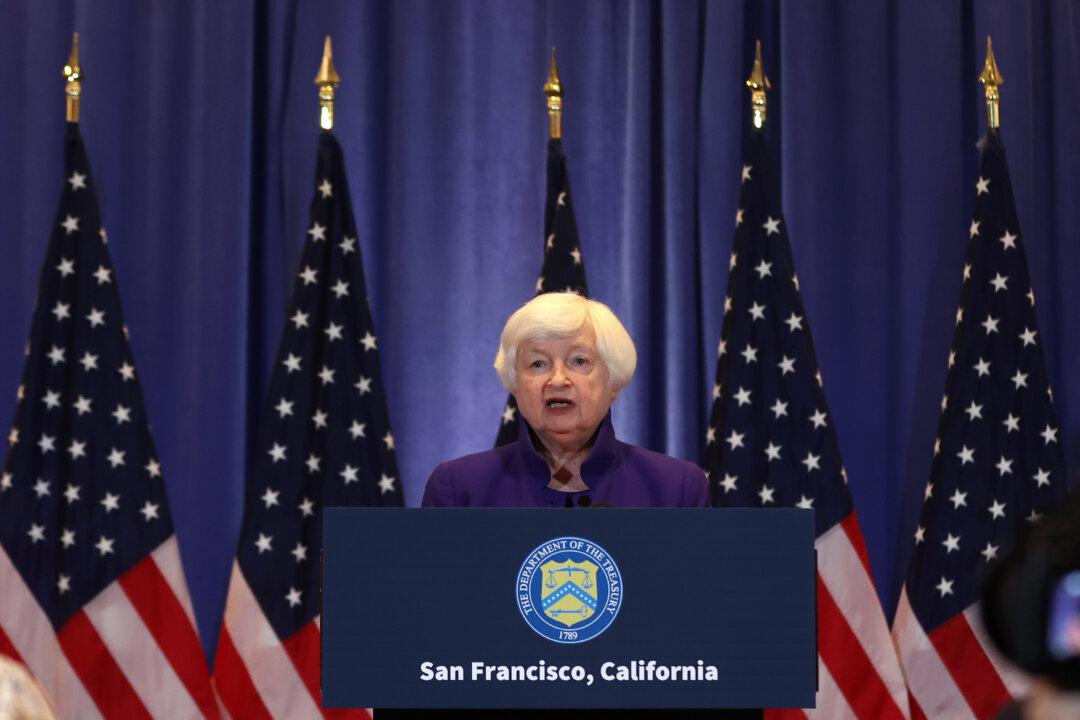Treasury Secretary Janet Yellen defended the Biden administration’s China strategy and outlined measures aimed at reducing tensions with Beijing in a speech on Dec. 14 at the U.S.-China Business Council’s 50th anniversary dinner in Washington.
National security would remain a top priority for the United States, she told the members of the business group, which promotes trade between the United States and China.





